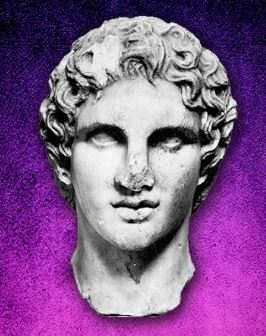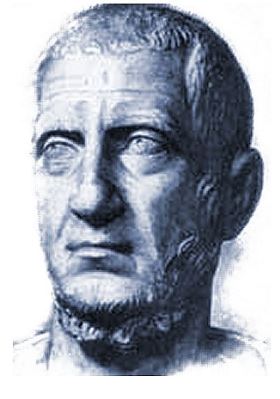
We have a broad and inclusive net to capture ideas filled with the diverse nature of Life in These United States. To that end, the staff of the Daily Socotra has introduced you to some fellow digital scribblers in the digital world. We hear from shipmate Point Loma about the way life was like, afloat and ashore, in the days before steam power, and his adventures on the Bounding Main (and on Liberty!).
Marlow contributed his long-running series of observations about America’s most amazing and Southernmost city, loud and rowdy Key West. He is on a bit of a hiatus, having relocated further north, but we expect him to return in good time with penetrating observations about the magical town of Savannah, Georgia.
But wait, there is more! This morning it is my great pleasure indeed to announce some proud additions to the masthead of The Daily Socotra: Tacitus and Arrian, two thoughtful observers of the passing parade.
Goodness knows, there is enough to keep everyone entertained this Fall with the raucous procession of the Endless Campaign of bluster, half-truths and outright calumny. Plus, there is the added thrill that the fate of the Republic may ride on what happens. That is where our two Classical-era commentators come into the picture. We have been negotiating with both gentlemen for several years, seeking a means to re-introduce them to a newer generation who do not know what they are missing. As a service, their essays and stories will appear exclusively on the Socotra House website in a shameless bid to provide more click-bait and keep our visitor numbers up. It is a fiercely competitive digital world out there, and the number of competitors bidding for the services was daunting.
You will like Tacitus- he has a wicked sense of the absurdity contained in our modern life. Arrian is more restrained- perhaps Stoic is the word- but equally thoughtful. Here is a little background on our newest featured authors:

Arrian
Arrian was born in Nicomedia (modern-day Izmit, Turkey) the provincial capital of Bithynia. Dio, the great Greek historian, called him “Flavius Arrianus Nicomediansis.” There is controversy about the date of his birth (around AD 90) and that of his formal retirement, but the strength of his analysis and the power of his writing are unmistakably tied to that tumultuous period. Arrian was made a Consul of the Empire around 130 AD. His family was from the provincial aristocracy of Greek stock, but his full name, L. Flavius Arrianus, indicates that he was a Roman citizen, suggesting his family had sworn allegiance to the Romans generations before, perhaps at the time of the Roman conquest some 170 years before.
Sometime during the 2nd century AD (117 to 120 AD) while in Epirus, Arrian attended the lectures of Epictetus of Nicopolis, the renowned Jesuit and Stoic Philosopher who had been born a slave. All that is known about the life of Epictetus is due to Arrian, in that he produced a Encheiridion (Handbook) of Epictetus’ philosophy. After his college years at Epirus, he traveled to Athens, while there he became known as the young Xenophon, as a consequence of the similarity of his relation to Epictetus as Xenophon had to Soctrates.
For a period, some time about 126 AD, he grew to understand hardball [politics at the Imperial level, hanging out in Emperor Hadrian’s posse commitatus. Through influence he was appointed to the Roman Senate, with more to come. First, he was consul suffectus (132 AD) then was advanced to be Governor of Cappadocia by his crony, the Emperor. He held that job for six years. When he retired, Arrian went to live in Athens, where he became archon and Priest of Demeter and Persaphone in 145 or 146 (EJ chinnock shows. He moved to assisted living in the reign of Emperor Marcus Auerlius, where he remained for the next couple millennia.
Arrian refers to himself as the second Xenophon, without false modesty. His acumen, penetrating insight, and sober perspective made him a natural for the electronic pages of the Daily, and we are delighted to offer him a spot of the digital rostrum.

Tacitus
Publius Cornelius Tacitus (c. AD 56 – and AD 120 for his temporary retirement) was a Senator and historian of the Roman Empire in the days of its greatness, seeing even then the seeds of ultimate destruction.
The surviving portions of his two major works—the Annals and the Histories —examine the reigns of Tiberius, Claudius, Nero and those who reigned in the chaotic Year of the Four Emperors (AD 69). These two works span the history of the Empire from the death of Augustus in AD 14 to the years of the First Jewish-Roman War in AD 70, which gives Tacitus a familiar perspective to these times of ours. There are substantial lacunae (missing pieces) in his surviving best sellers, including a gap in the Annals that is four books long. There was a significant controversy about the missing material, which effectively was deleted from history, leaving us clueless about the period.
In addition to the near-daily columns he will contribute, Tacitus’ other writings discuss the skills of the art of oration, and the life of his father-in-law Agricola, the General responsible for much of the Roman conquest of Britain.Tacitus is considered to be one of the greatest Roman historians, documenting the Silver Age of Latin literature. He is known for the brevity and compactness of his prose, as well as for his penetrating insights into the psychology of power politics. As such, he brings a unique perspective on post-classical life and times. The Daily is honored to povide a forum for his far-reahing intellect and centuries of experience in the agora of public affairs. All of us here at Socotra House, LLC, are pleased he has agreed to submit his thoughts for your consideration.
I hope you will enjoy reading these two Great Romans and their unique take on the Pax Americana as much as we do. Let’s give them a round of applause as introduction.
There is much more to come!
Vic
Copyright 2016 Vic Socotra
www.vicsocotra.com
